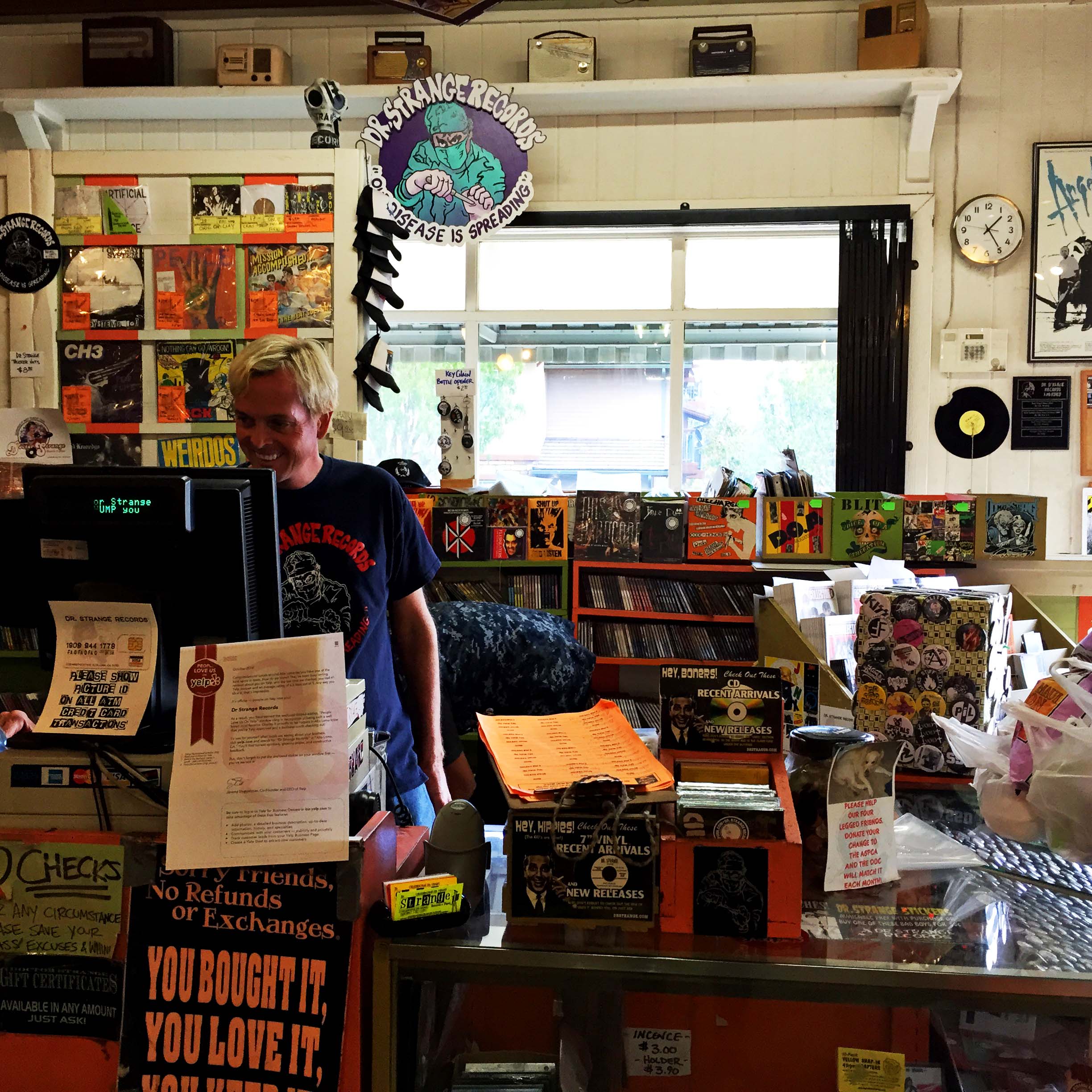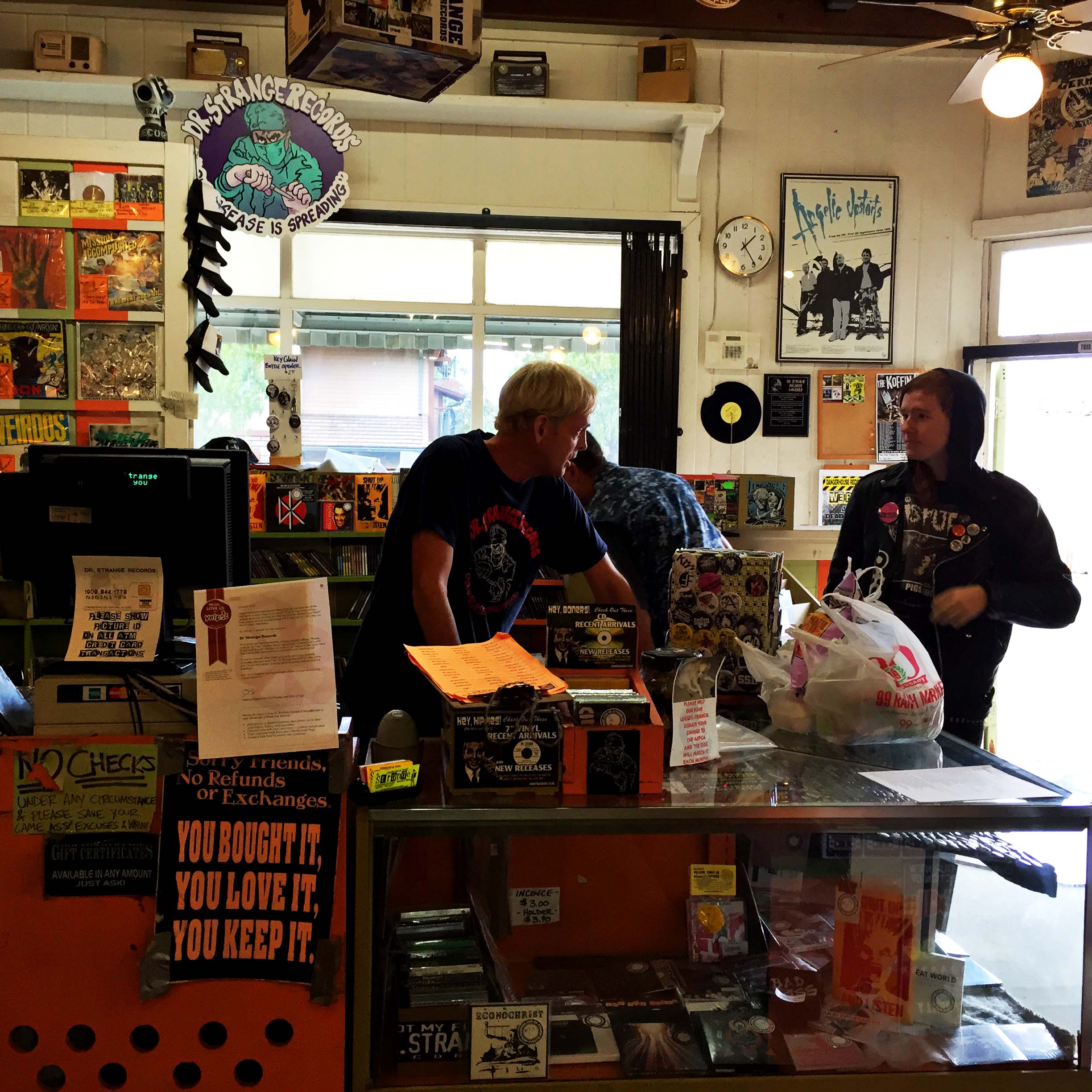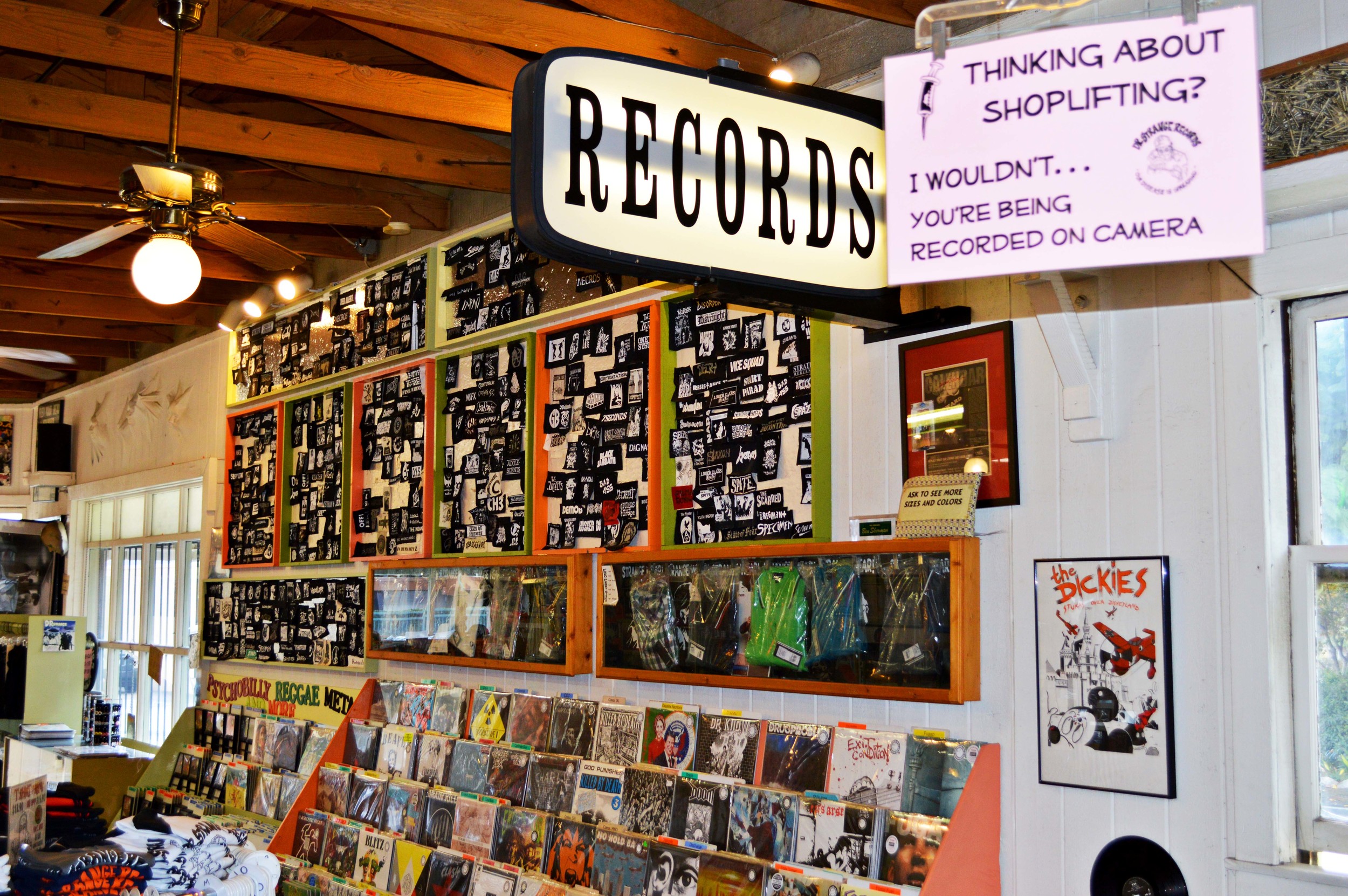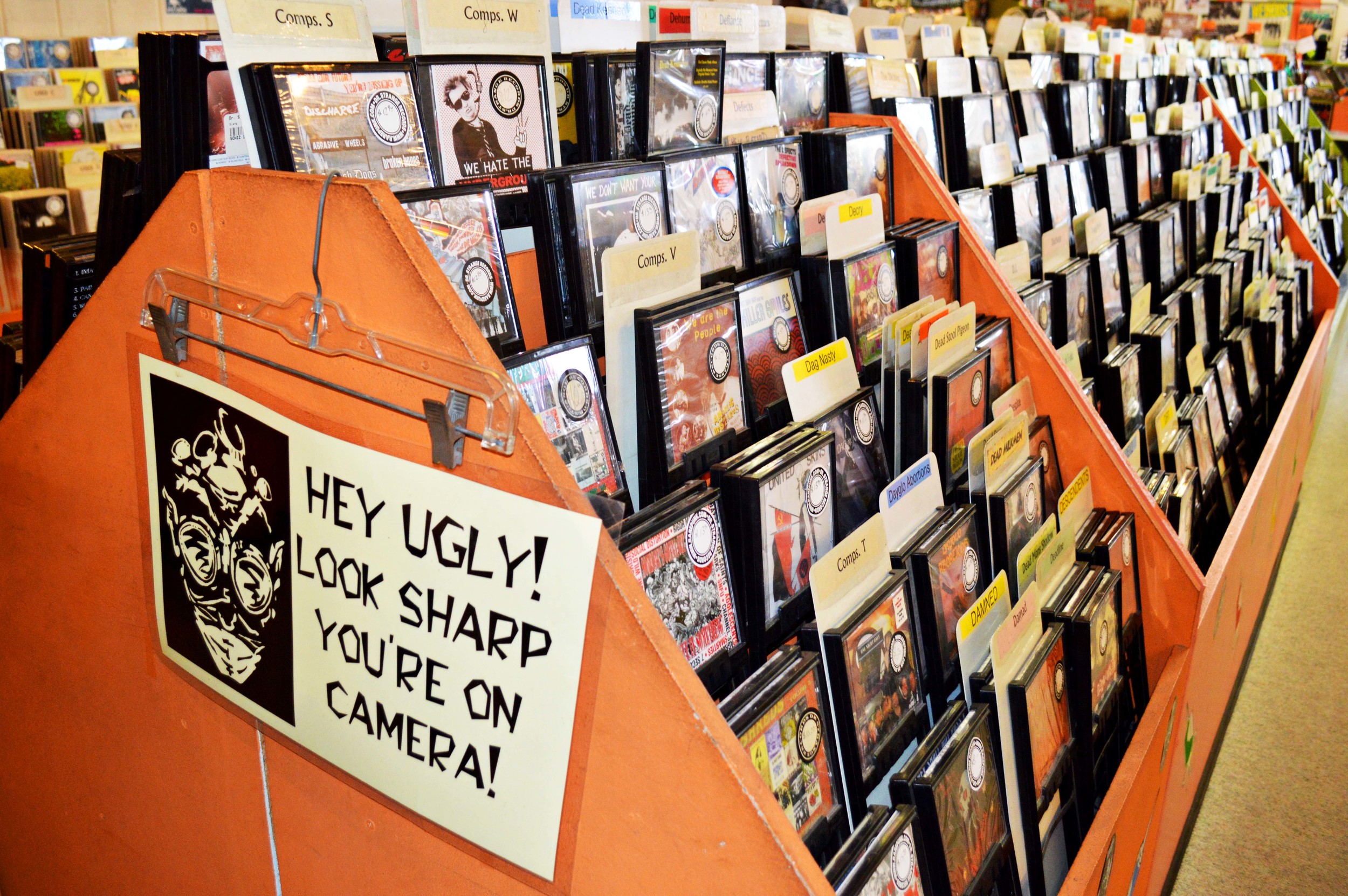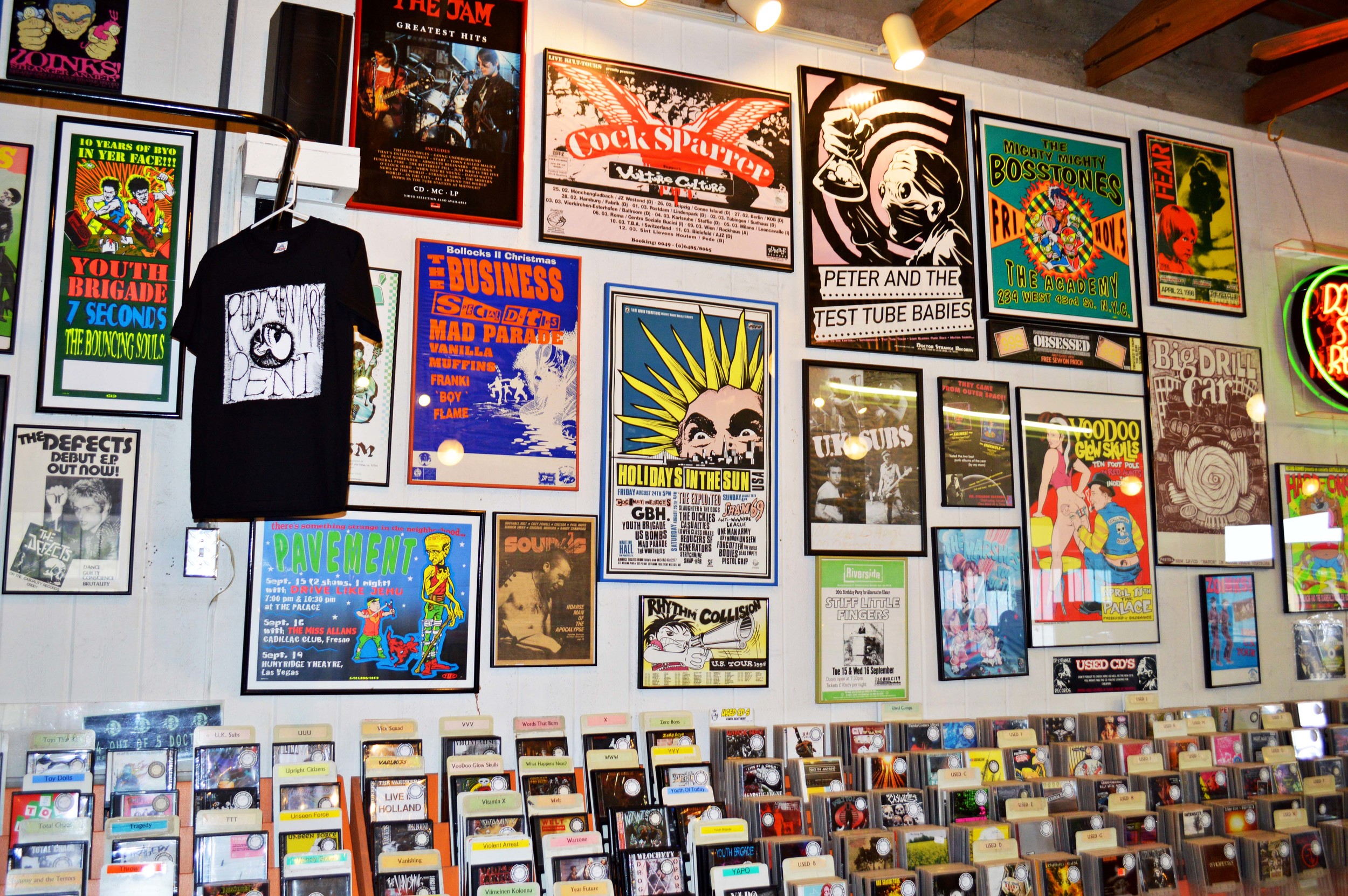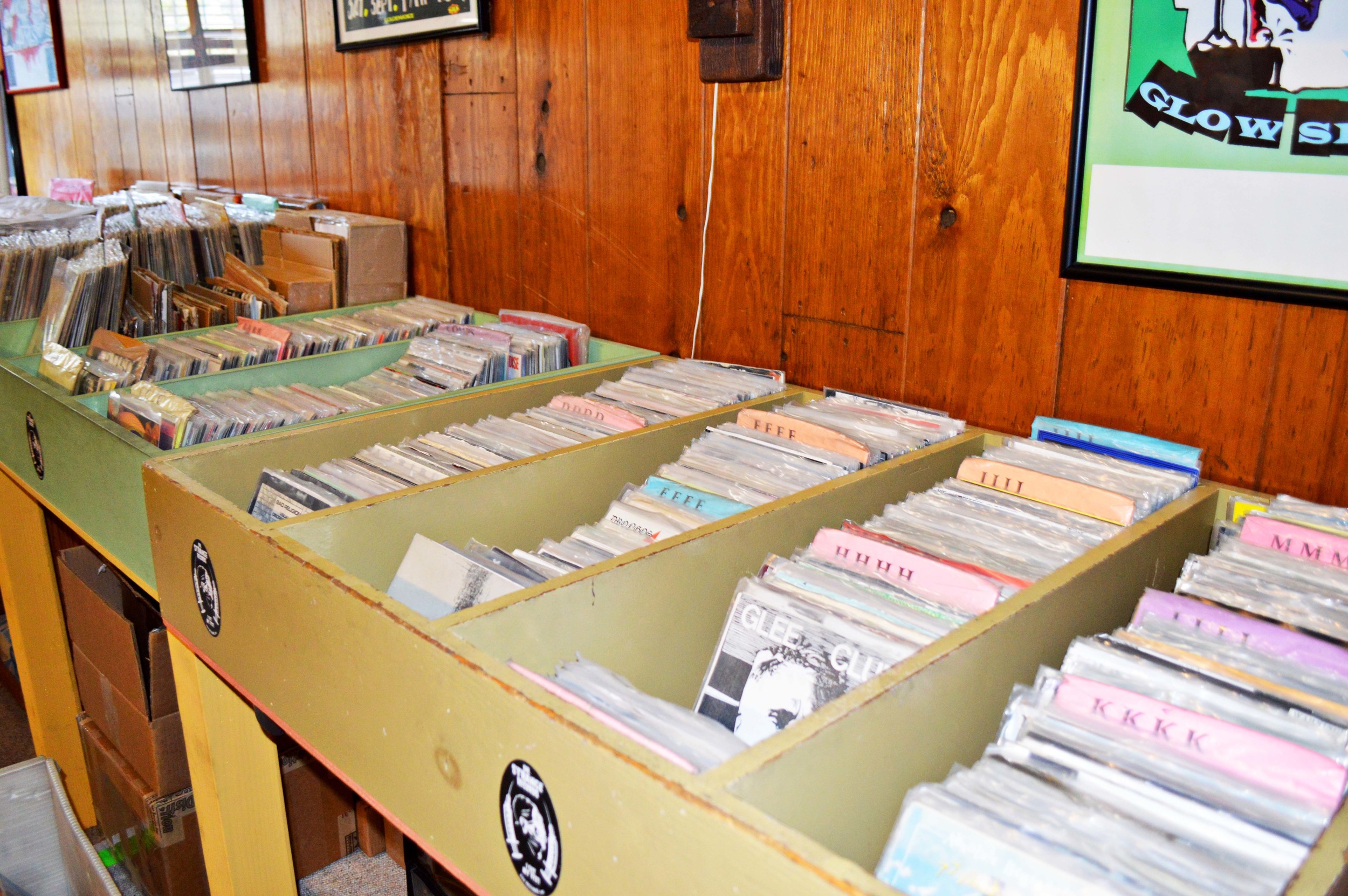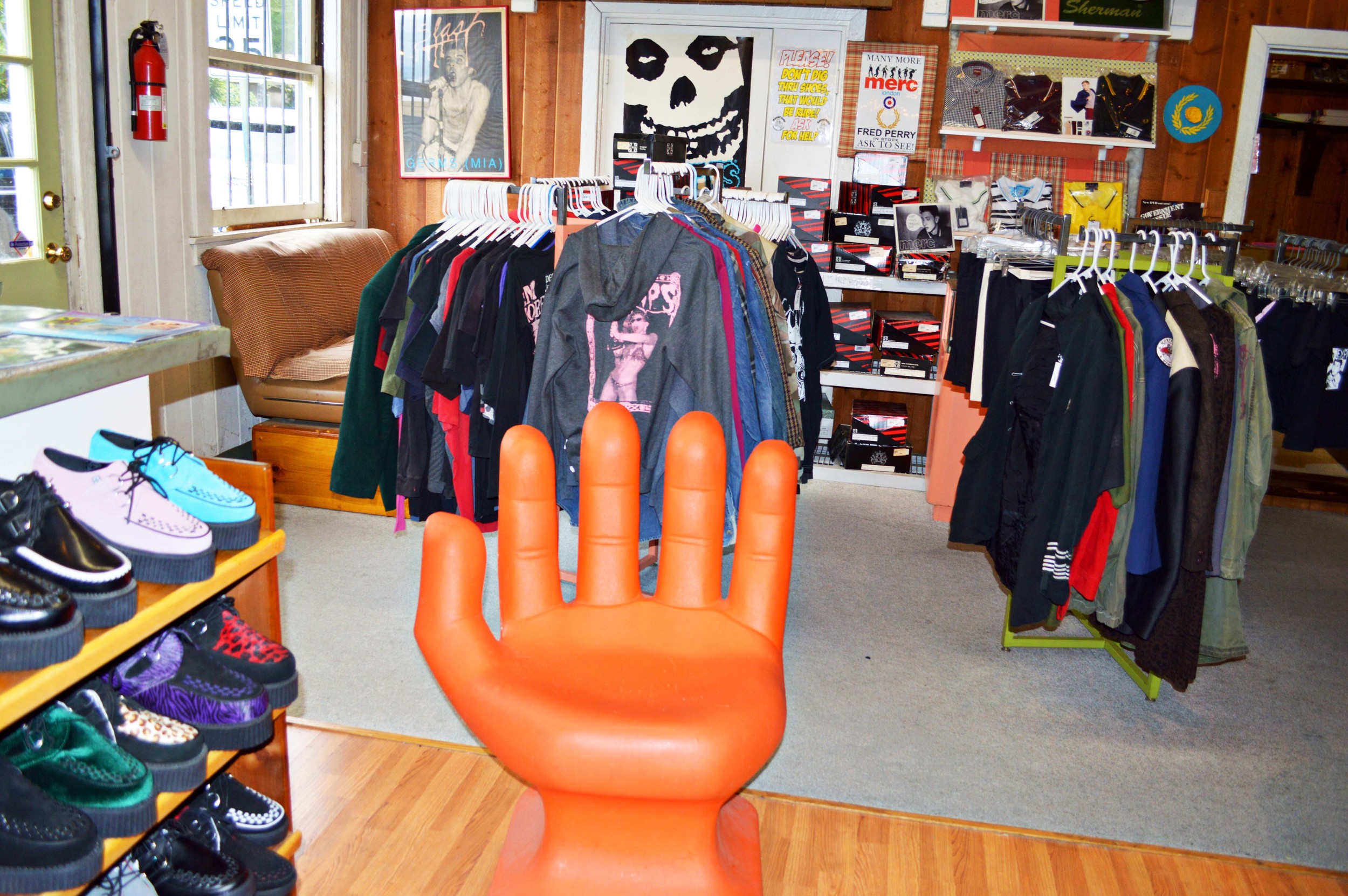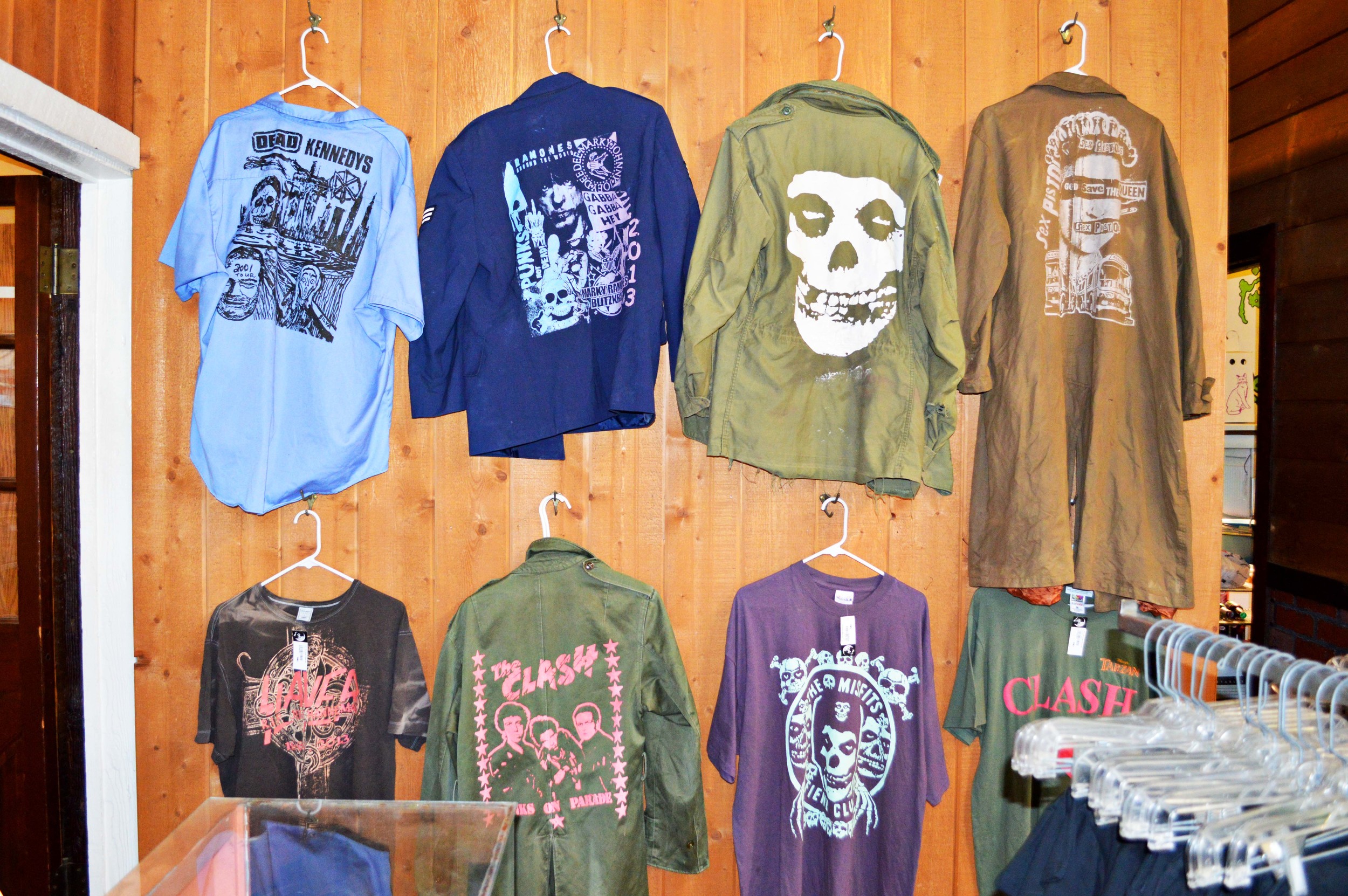DOCTOR'S ORDERS
Dr. Strange Records
Alta Loma, Calif.
Bill Plaster's in the middle of explaining how Dr. Strange records—the label—came to be when a regular walks in looking for the Fred Perry shirts.
"You probably want a large. They're the slim fit. Put your hand right to your left," Plaster says guiding him to where the shirts are.
"How much are they," the customer asks.
"$72. Expensive but way cheaper here. They're about $15 cheaper," Plaster tells him.
The customer tries one of the shirts on for size.
"It looks good. Check it out in the mirror," Plaster says, once again interrupting himself from the story of how Dr. Strange came to be. "Just, if you get it, don't dry it. Flat dry it 'cause it'll shrink up big time. You don't need to get it dry cleaned. Laundered is 99 cents. Dry clean is $2-something. It's a total scam."
Customer service. It's the kind of dialogue that feels more like a conversation between friends than one of a salesman with his customer—and that's the rub for Plaster and the three businesses he has under the Dr. Strange Records umbrella.
"I never want to be accused of being a used car salesman, you know?" Plaster said. "It's just about sharing good music."
That's what got him down the punk rabbit hole to begin with.
And after more than two decades doing what he does, Plaster now lays claim to a brand that's known to punk record collectors and music fans throughout the world in the form of a mail order opened in 1988, followed by a label launch the next year and a store on Amethyst Avenue in Alta Loma that bowed in 1997. Business is back on the up after the blow the recession dealt to most businesses, the store underwent a refresh with renovations and the label celebrated its 25th anniversary last year. It's a significant feat for any small business owner but particularly one operating in an industry that reports would have you believe is contracting each year.
In 1980 Plaster was just getting into punk after listening mostly to new wave in the vein of Blondie and Devo. He and his friends were already frequenting record stores such as Toxic Shock in Pomona and shopping at the Hollywood clothing store Posers.
"We'd go to a store, I'd see records and they were kind of a rip off—not a rip-off, but just kind of expensive," he said. "I started buying records and trading records in England, stuff like X-Ray Spex, Rudimentary Peni, Crass—for nothing. For $3. And then I'd see them at record stores, especially in Hollywood for $20. I [thought] why don't I just buy a couple extra and I could sell them at a fair price to my friends. So that's really how it started. The whole thing started to prevent rip-off people from ripping us off."
That led to the mail-order catalog that has since introduced many a young punk into the world of collectible vinyl. The first catalog was a single page with 35 items, done on a typewriter.
"Every single month, I'd have to re-type everything—see what sold, delete that [and] re-type it," he said. "I did that for years and the catalogue just kept getting bigger and bigger. It's just all for fun. It took me six years until I even made a nickel. But I never cared."
At the time, Plaster was waiting tables and working in the kitchen of Fat Daddy's Pizza in Upland while going to school to be a teacher.
The record label started the next year.
"I saw a show—like on 20/20 or you know one of those shows—saying that your percentage of accomplishing a goal is 80 percent higher for people if you actually write them down," Plaster said. "So I'm like 'OK, I'm going to write down my goals and one of my goals was to put a record out.'"
Plaster ended up befriending a fellow former Upland High School student who was a couple years older than him, living in the same apartment complex as him, who happened to be the singer of Manson Youth. Plaster asked if he could put out a seven inch for the band that had been recorded in 1983.
"I just wanted to do one just to cross it off my list of goals. And so I did that," he said. "I got super lucky."
Plaster got in touch with Mordam Records, which was later sold to Lumberjack Distribution, and ended up selling 500 of the records within a week and the wheels began turning.
"I couldn't believe it," Plaster said. "So then I said 'OK, I'll do another one.' And then every single penny I got, I'm still just putting it back in 'cause I'm still waiting tables and as long I can just not lose [money] I'm happy."
Plaster was also still in college at the time trying to get his degree so he could go into a profession that a long list of family members had been in.
"It's a noble job. My dad was a superintendent. My mom was a teacher. My uncle was a teacher. A lot of teachers," he said. "It's important to have an effect on people, but this has a big effect on people. So I can tell people, I didn't finish college and I'm really pro school, but do what you want to do and just give it your all and don't care what people say. My family was like 'What are you going to do? You're kidding me.' They [said] that's crazy. But you've got to do what you really want to do."
To date, Dr. Strange Records—the label alone—has released some 135 records including those by Narcoleptic Youth, the Voids, Government Issue and The Partisans. But outside of the numbers, Plaster has built a sense of community and is also not only a wealth of information but also dispenses advice to a lot of the kids that come into the store.
"Everyone should have fun and I'm not trying to be preachy. I'm just trying to show [the kids that come in] just keep your head clean and focus on something," he said. "I still have friends that are like my age who I grew up with in high school that used to smoke pot and they're the same. It's like [they'll say] 'I'll do it tomorrow. I'll do it tomorrow.' It takes a sharpness—and I've seen it—off your mind and it makes you like 'eh, whatever.'"
It's that sharpness that continued to propel Plaster into his next endeavor when, in 1997, he opened the doors to his brick-and-mortar shop. It's located in a 108-year-old building that was the first post office in what was once downtown Alta Loma and across the street used to sit the 1896 Sunkist packing plant. He remembered the site from when, nearly 30 years prior, his mom had driven him around there.
In the beginning there was too much store and not enough merchandise, but now Plaster said he sometimes wishes he had more space. Although, he has no intention of opening a second store at this point, citing the additional time it would require from him.
"I did [think about it] but then I figured when I thought that things were really busy I could have done it, but I have to enjoy what I'm doing. I have to have a life," he said. "I want to be home—I know it sounds silly, but I want to be home in time to watch The Simpsons. I don't live to work. I work to live."
That's not to say he's coasting with the business either.
"I haven't clocked out in 26 years, but I love it," Plaster said. "I still love going to work. It's fun. It's the same feeling I had in college or taking classes to become a teacher where I'm only thinking about record stuff because it's fun. It's exciting. My biggest turn on—for lack of a better word—is a well-executed plan."
In just a couple more years, Dr. Strange, the mail order, will celebrate its 30th anniversary. Plaster can say then, just as he can now, he's executed very well on a number of plans.
Dr. Strange Records
7136 Amethyst Ave.
Alta Loma, CA 91701
11 a.m. to 7 p.m. daily
Online Store: www.drstrange.com
Instagram: @drstrangerecords

